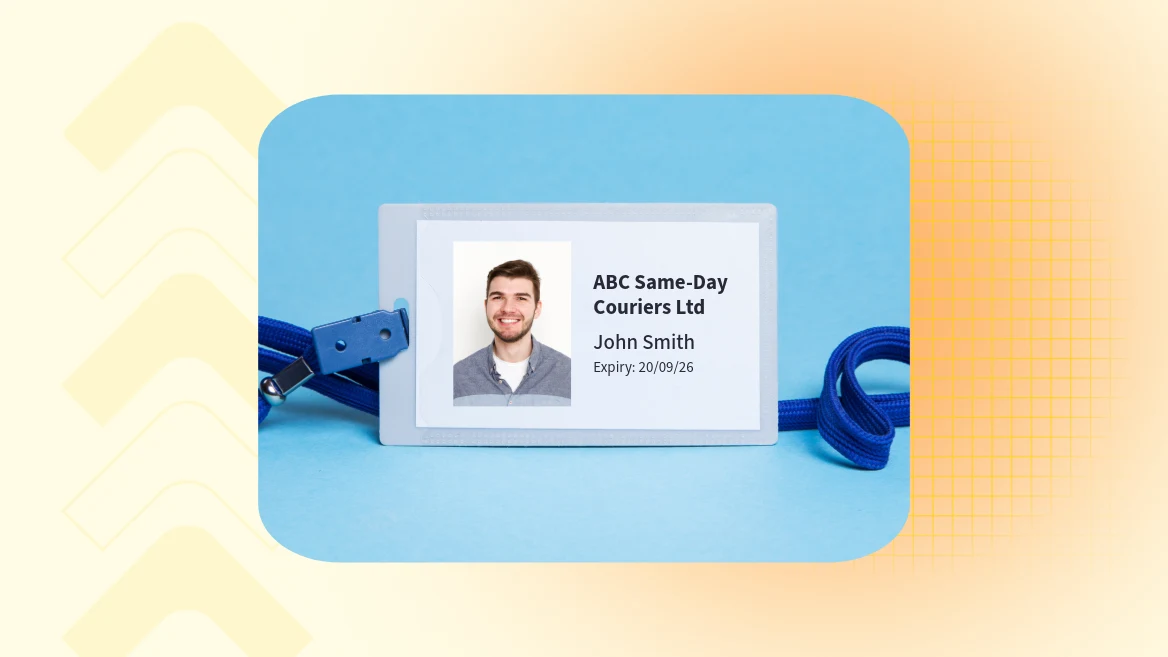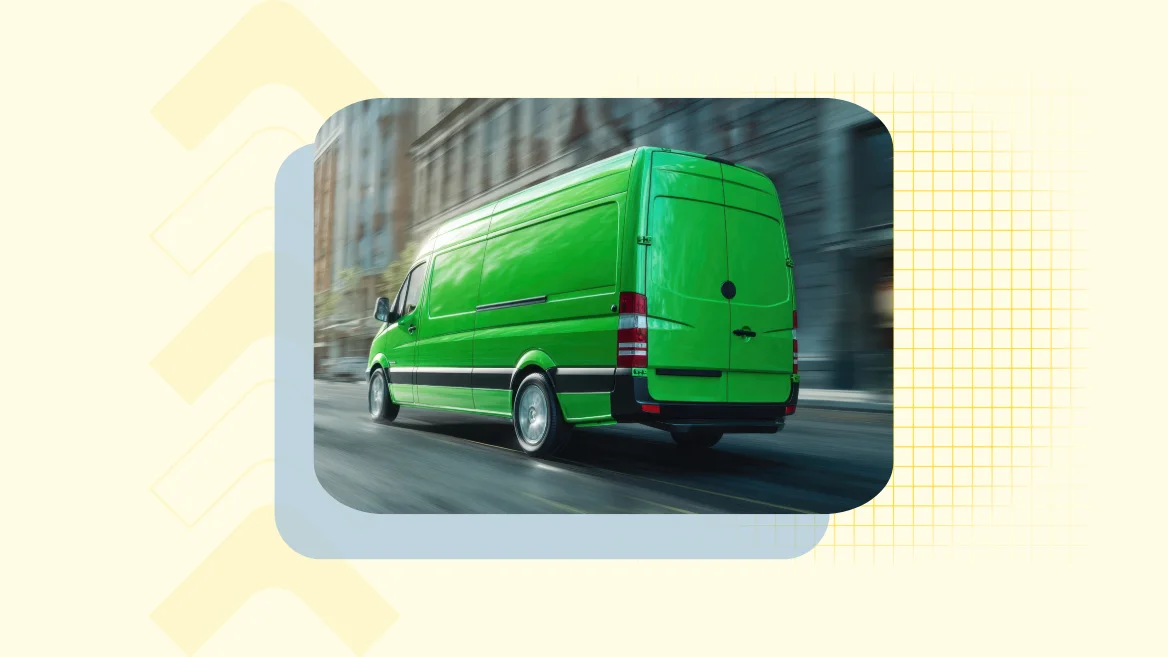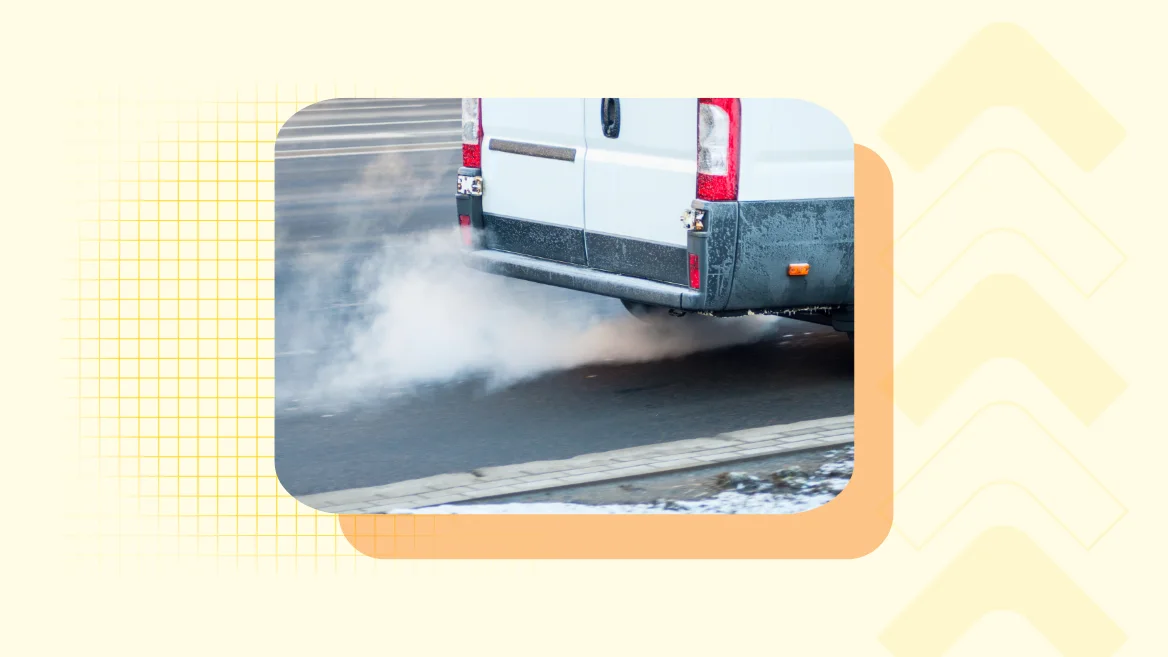When you’re running your own courier business, standing out as professional and reliable can help you win work and avoid unnecessary delays.
A courier ID badge might seem like a small thing, but it can make a real difference. Especially when you’re picking up loads from high-security locations like airports or large distribution hubs.
Whether you’re a self-employed sole trader or running an independent courier company, having a proper ID badge adds a layer of professionalism to your work. And the best part? You can make one yourself for less than a tenner.
What we’ll cover
Get access to 15,000+ loads a day on Courier Exchange
Be your own boss. Set your own hours. Make your own money.
When does a courier ID badge come in handy?
An ID badge isn’t always required, but it’s often requested on CX jobs involving secure or sensitive sites. Having one ready can save you time and prevent issues at the gate.
Here are some examples:
Airport pickups
Airports tend to have strict access rules. Security staff may ask for a company ID badge, a driving licence, or even a passport. A proper badge helps prove who you are and which firm you’re working for.
Airports take cargo aviation security very seriously, so having visible ID can reduce delays and help you look more credible from the moment you arrive.
Distribution centres and depots
Larger logistics hubs—especially those doing temperature-controlled transport or high-value courier jobs—may require you to sign in at a gatehouse. In some cases, you’ll need to hand over your ID or wear a visitor pass.
Carrying your own courier ID badge adds another layer of professionalism. It can also help you avoid being held up while security makes extra checks.
Waste sites and regulated zones
If you have a waste carrier licence or are ADR-certified, you’ll often be delivering loads to regulated environments. Even if the site doesn’t insist on ID, it’s better to have one prepared, especially if the site deals with chemicals or high-risk goods.
You might not get these jobs without being able to show that you’re a legitimate business. A printed badge with all your key details helps you stand out from less-prepared drivers.
Making a good impression
Whether you’re collecting from a warehouse or delivering to a corporate office, first impressions matter. In addition to the correct courier PPE, a courier ID badge shows that you’re taking your business seriously.
It also helps when you’re doing courier subcontracting for other companies. If you’ve been booked under your own business name but are collecting on behalf of someone else, site staff will want to verify who you are. Having a badge with your name and company printed clearly can help avoid confusion.

How to make your own ID badge
You don’t need to hire a graphic designer or buy specialist software. There are simple ways to create your own courier ID badge, whether you want to print it yourself or order one online.
Options for DIY and print services
Pete the Trucker, a popular voice in the logistics industry, shared a tip on his Youtube channel that’s helped many new drivers. He found a service on Amazon where you can create a badge from your phone, upload a photo, fill in your details, and get the printed badge delivered, all for around £6.
You can also use websites like IDCardCentre or WePrintLanyards if you want to use a dedicated service, or you could even design your own company ID badge on Canva and print it out yourself. A cheap plastic badge holder and lanyard help keep things tidy.
What to include on your badge
Your courier ID badge should include clear and accurate information. Here’s what to include:
- Your company name
- Your full name
- A recent, passport-style photo
- A contact phone number
- An expiry date (2 years is a good rule of thumb)
Including an expiry date helps your courier ID badge look legitimate. Avoid putting a 10-year date on there, as it can look careless or outdated. Updating it with a new passport-style photo every couple of years keeps things fresh.
What makes a badge look professional?
The badge doesn’t need to be fancy, but it should look like it belongs to someone running a proper business. Avoid paper cards or handwritten notes—that kind of thing can make sites turn you away, especially on jobs involving ADR courier work, temperature-controlled transport, or high-security deliveries.
For less than the price of a takeaway, you can get a plastic card printed with your details. Pair it with a clip-on holder or lanyard. Some drivers even add their courier PPE colours or company logo to keep everything branded.
If you’re doing live event courier jobs or other public-facing deliveries, it can help you stand out as someone reliable and prepared.
Should self-employed couriers bother?
In short: yes, it’s worth it. Even if you don’t need it every week, having a courier ID badge gives you peace of mind when applying for certain types of work. It’s especially helpful if you’re targeting high-value courier jobs or sensitive collections.
Loads that mention “must have company ID” can often get skipped by new drivers who think it’s not worth the hassle. But spending five minutes setting up your badge could mean you land more jobs in the long run.
If you’re debating whether to set up as a sole trader or limited company, this kind of detail can help you look more professional from day one when you start your new courier business.
Get access to 15,000+ daily loads on Courier Exchange
Be your own boss. Set your own hours. Make your own money.
FAQs about courier identification
How much does a courier ID badge cost?
You can usually get one made online for around £6. Some services let you design and preview your badge before ordering. If you prefer DIY, just buy a laminator and blank cards, but be sure the finished badge looks professional.
Can I use a company ID badge for jobs under another firm’s name?
Yes, as long as the load poster notifies the site who’s coming. If you’ve been booked under your own company name, your badge should match. It’s part of building trust as a courier and avoiding confusion at pickup points.
Is a courier ID badge mandatory?
No, but it can help. Jobs posted under international courier work or airport runs often request ID. Having one ready means you don’t need to turn down work that asks for identification.
How often should I update my badge?
Every two years is a good rule. Avoid dates that stretch too far into the future, as it might look like you made it and forgot about it. Keeping it current helps maintain a professional image.
What if I turn up without one?
In most cases, sites will still accept other ID, like your driving licence or passport. But a badge speeds things up and shows you’re prepared. For anything involving waste carrier licence requirements or deliveries under strict access control, it’s best to have one ready.




